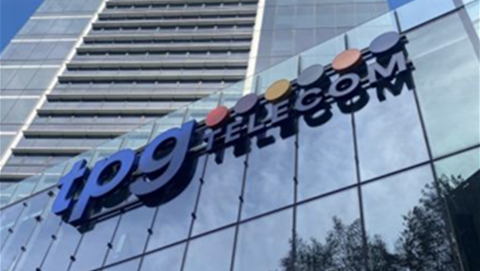The competition watchdog will for the first time regulate fees charged by network operators to receive and terminate SMS services on their networks, after its inquiry into the regulation of mobile termination access services (MTAS) found commercial negotiations had failed to lower abnormally high SMS rates.
The MTAS is the wholesale agreement telecommunications companies offer each other to connect calls between different networks. It has never before included SMS messaging, rates for which have instead been set by commercial agreements.
The Australian Competition and Consumer Commission (ACCC) has previously suggested the commercial agreements were not working and were leading to market failure.
Its proposal last year to regulate the charges was met with favour from Optus, Macquarie Telecom and iiNet, but the majority of Australia’s telcos previously signalled their opposition to the suggestion.
Telstra and Vodafone specifically argued that the competitive mobile messaging market was keeping SMS wholesale fees in check, negating the need for regulatory oversight.
The ACCC today revealed [pdf] it would include SMS fees within the MTAS regulation in an effort to lower rates, after finding the charges had not changed for over a decade and were much higher than the cost of providing the service, despite a continual increase in the use of SMS by consumers.
It also found consumers with lower-cost plans were being charged higher rates for SMS messaging - plans without unlimited SMS offered the service at between 25 to 30 cents per message, which the ACCC considered "very high" compared the actual cost of providing the service.
“The ACCC is concerned that mobile network operators are able to keep wholesale SMS termination rates significantly above cost,” ACCC chair Cristina Cifuentes said in a statement.
“The ACCC considers that this is having a negative impact on competition in wholesale and retail markets. In particular we are concerned that these rates are affecting SMS prices available to low income consumers.”
It will additionally continue to regulate mobile voice termination services for another five years, a proposal backed by the local telco sector.
The ACCC said the inclusion of SMS in the MTAS would promote competition in the downstream retail market for mobile services; the wholesale A2P SMS market (by allowing MNOs to offer lower off-net A2P SMS rates); and the downstream A2P markets (as SMS aggregators and A2P service providers could offer lower rates to end-users).
The ACCC had previously considered regulating SMS termination fees in its 2009 MTAS inquiry, but opted against it as it found the charges were subject to ongoing commercial agreements and had not resulted in demonstrable market failure.
It said today the market had changed since 2009 and the rates were not currently competitive.
A monopoly by each mobile network operator (MNO) over the provision of SMS termination services on their network meant the MNOs had the opportunity to exploit their market power over the services and keep prices high.
Over-the-top messaging not an effective substitute for SMS
Despite arguments by Telstra and Vodafone that competition by popular over-the-top (OTT) players like WhatsApp and Viber was keeping SMS charges in check, the ACCC found the services weren’t an effective substitute for SMS.
It said the apps required both a smartphone, which are not in use by All Australian mobile users, and that parties at both the receiving and sending end use the same application, in contrast to SMS services which are not limited to network.
“The ACCC acknowledges that OTT messaging applications are functionally similar to SMS services, as they allow mobile users to communicate by sending instant short text messages," the watchdog said.
"However, the ACCC has found that there are particular characteristics of OTT services which mean they are currently not effective substitutes.”
Optus had previously signalled its disagreement with Telstra and Vodafone’s assessment of OTT competition, saying telcos did not truly see the apps as direct rivals.
"If it was correct that data-based OTT services were a competitive option to SMS termination, one would expect to see price reactions and other competitive responses from [mobile network operators] that supply SMS termination," Optus said in its prior submission to the inquiry.
"This has not happened. It is evident from the SMS termination rate that these services have not placed an effective constraint on [operators]. There has been no incentive for [operators] to reduce their SMS termination rates."


























